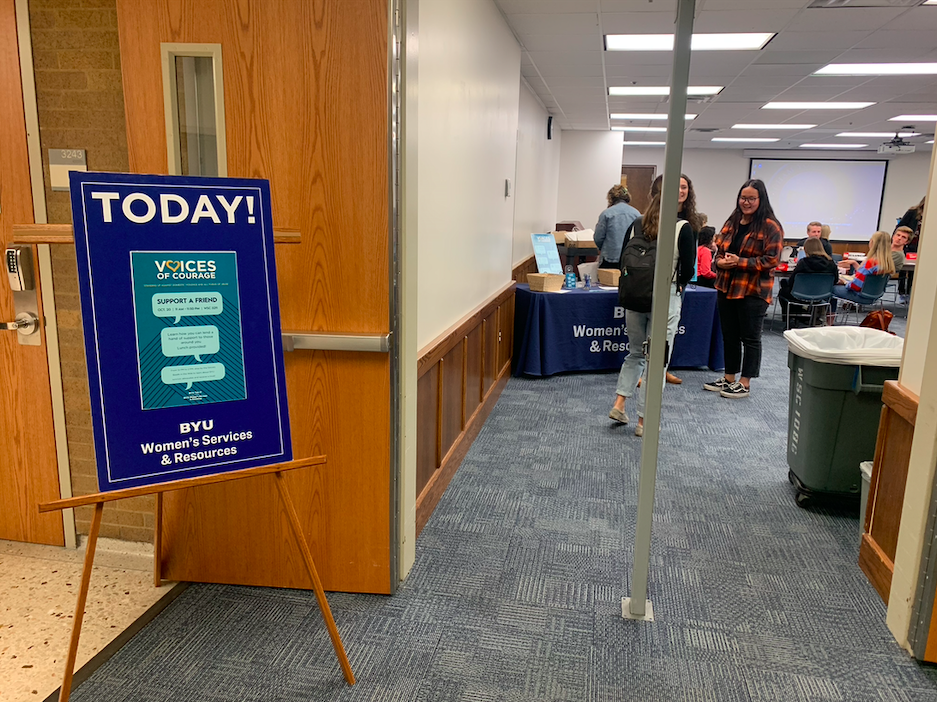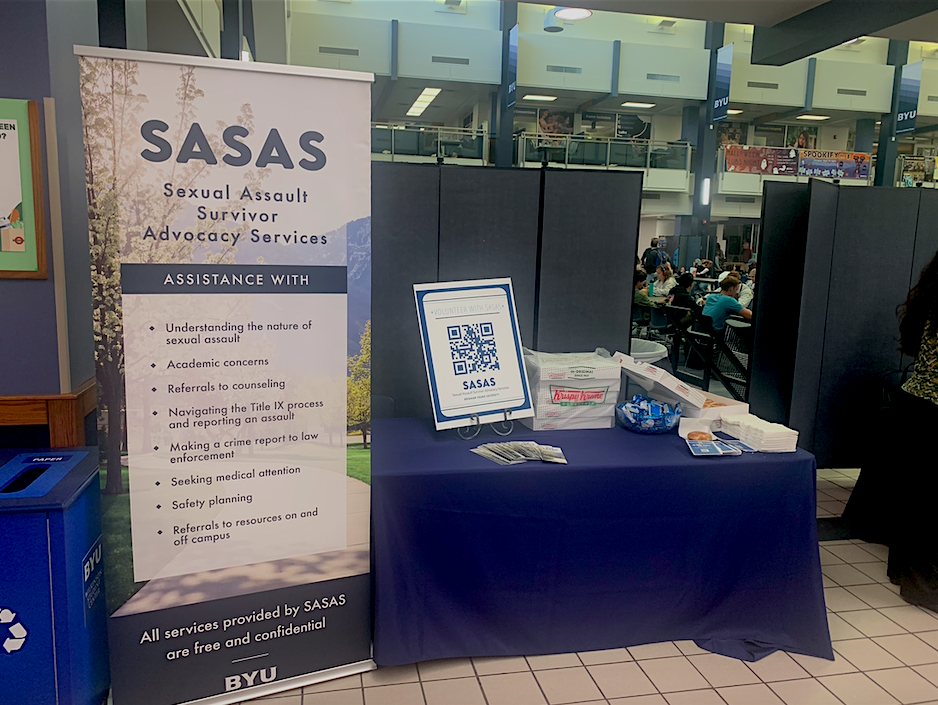
BYU’s Women’s Services & Resources center and Title IX office collaborated this week on the “Voices of Courage” campaign, which aims to teach students how to recognize the signs of domestic abuse and utilize campus resources to address it.
The campaign is a yearly occurrence with a week of events each fall. This week’s activities included an awareness gallery to teach about available resources for survivors, a pledge wall for students to commit to preventing and stopping domestic violence, a service project to support survivors within the community, a presentation on how to help friends in abusive situations and a healing artistic activity.

Title IX coordinator Tiffany Turley Bowcut spoke at Thursday’s presentation on what she called the “4 Rs”: (1) recognize the signs of abuse, (2) remember that abuse is never the victim’s fault, (3) respond in positive ways to those who open up about abuse and (4) refer them to helpful resources.
Bowcut said it is important for BYU students to understand these aspects of dealing with abuse.
“The likelihood that you will face someone coming to you to report abuse during your time at BYU is pretty high,” she said.
Bowcut reported that the Title IX office has had more reports this fall than she has ever seen in one semester during her six years working there. She said that did not necessarily mean actual instances of abuse were increasing, but that people were reporting it more frequently.
“It’s a positive thing,” she said. “That means people know they can come forward.”
Bowcut also said students can seek help without fearing university disciplinary action.
“Being a victim of sexual assault is never, ever, ever a violation of the Honor Code,” she said. “If someone has concerns about that, they can come talk to our office.”
Sexual assault and domestic violence are not uncommon even on BYU campus, Bowman said. She shared a report from the 2019 Association of American Universities Campus Climate Survey, which claims that over 20% of college students report having experienced dating violence by a current partner.
BYU student Julia Jenson, who attended Bowcut’s presentation, said she attended the event because she believes abuse is more common than people on campus realize, and she wanted to learn how to help.
“Nobody deserves to feel that way, and nobody deserves to feel so powerless,” she said.
BYU has several resources for people facing abusive situations. The Title IX office, WSR, Sexual Assault Survivor Advocacy Services, Counseling and Psychological Services, University Accessibility Center and Student Health Center are all places students can go to receive support.


According to Bowcut, people being abused can exhibit behavior such as seeming afraid or anxious to please their partner, going along with everything their partner says and does, checking in often with their partner to report where they are and what they’re doing and receiving frequent and harassing phone calls from their partner. They may also have unexplained or repeated injuries and frequently miss school, work or social activities without explanation.
Bowcut said signs of abusive behavior include a volatile temper, controlling actions, jealousy and possessiveness.
BYU student Vivian Spencer said she especially recommended the WSR, Title IX and Honor Code offices for students seeking help.
“Women’s services is a really great place, and I love learning about all that they can give,” Spencer said. “They’re really out there to help students.”
Spencer said she has participated in several of this week’s events and feels they’re important to fostering a healthy culture on BYU campus.
“If we’re going to have a Zion community and treat each other as Christ would, we need to know how to support each other,” she said.




